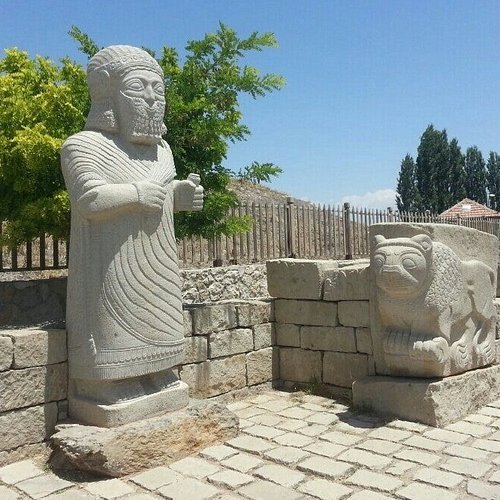Malatya, situated in eastern Turkey, boasts a storied history that spans millennia, shaping its cultural identity and architectural landscape. From ancient civilizations to modern developments, Malatya has been a crossroads of cultures and civilizations, leaving behind a legacy that continues to resonate today.
Ancient Origins and Early Civilizations
The history of Malatya dates back to ancient times, with archaeological evidence indicating human habitation as early as the Paleolithic period. The region flourished under various ancient civilizations, including the Hittites, who established a significant presence in Anatolia during the Bronze Age. Malatya’s strategic location facilitated trade routes and cultural exchanges, contributing to its growth as a hub of commerce and cultural interaction.
During the Hittite period, Malatya served as an important administrative and religious center, evidenced by the discovery of temples, palaces, and artifacts that reflect the society’s religious beliefs and artistic achievements. The city’s prominence continued through subsequent civilizations, including the Assyrians and Urartians, who left their mark on the region’s architectural and cultural heritage.

Hellenistic and Roman Influence
With the decline of the Hittite Empire, Malatya came under the influence of Hellenistic and later Roman civilizations. Under Roman rule, the city prospered as a strategic military outpost and commercial center along the ancient Silk Road. The Romans constructed roads, aqueducts, and public buildings that transformed Malatya into a bustling urban center, known for its vibrant markets and cultural diversity.
Byzantine and Seljuk Eras
During the Byzantine period, Malatya continued to thrive as an important Byzantine stronghold and center of Christian influence in the region. The city’s strategic significance led to frequent conflicts and territorial disputes among Byzantine rulers, Persian Sassanids, and Arab invaders. In the 11th century, Malatya fell to the Seljuk Turks, marking the beginning of Turkish-Islamic rule in Anatolia. The Seljuks established Malatya as a provincial capital and cultural center, constructing mosques, madrasas, and caravanserais that enriched the city’s architectural landscape.
Ottoman and Modern Era
In the 15th century, Malatya came under Ottoman rule, contributing to the Ottoman Empire’s administrative and economic structure. The Ottomans further developed the city’s infrastructure, expanding trade networks and agricultural production, particularly apricot cultivation, which remains a hallmark of Malatya’s economy today. During the late Ottoman period and into the early 20th century, Malatya witnessed social and political reforms that shaped its modern identity, culminating in the establishment of the Republic of Turkey in 1923.
Present-Day Malatya: Cultural Heritage and Economic Development
Today, Malatya stands as a testament to its rich historical legacy and cultural diversity. The city’s architectural landmarks, including ancient ruins, Ottoman-era mosques, and modern infrastructure, reflect its dynamic past and ongoing evolution. Malatya’s economy is driven by agriculture, industry, and trade, with apricot production remaining a vital component of its agricultural sector.
Culturally, Malatya celebrates its heritage through festivals, traditional cuisine, and local customs that highlight the region’s multicultural influences. The city’s museums, archaeological sites, and cultural institutions offer insights into its ancient civilizations and contemporary achievements, attracting tourists and scholars alike.
Conclusion
In conclusion, Malatya’s journey from ancient times to the present-day exemplifies its resilience, cultural vibrancy, and historical significance. As a crossroads of civilizations, Malatya continues to evolve while honoring its past, offering visitors a glimpse into Turkey’s diverse cultural tapestry and historical legacy. Whether exploring ancient ruins, sampling local delicacies, or experiencing modern Turkish hospitality, Malatya invites travelers to discover its timeless charm and enduring spirit.

